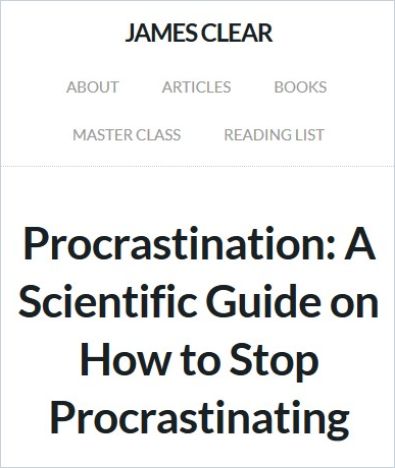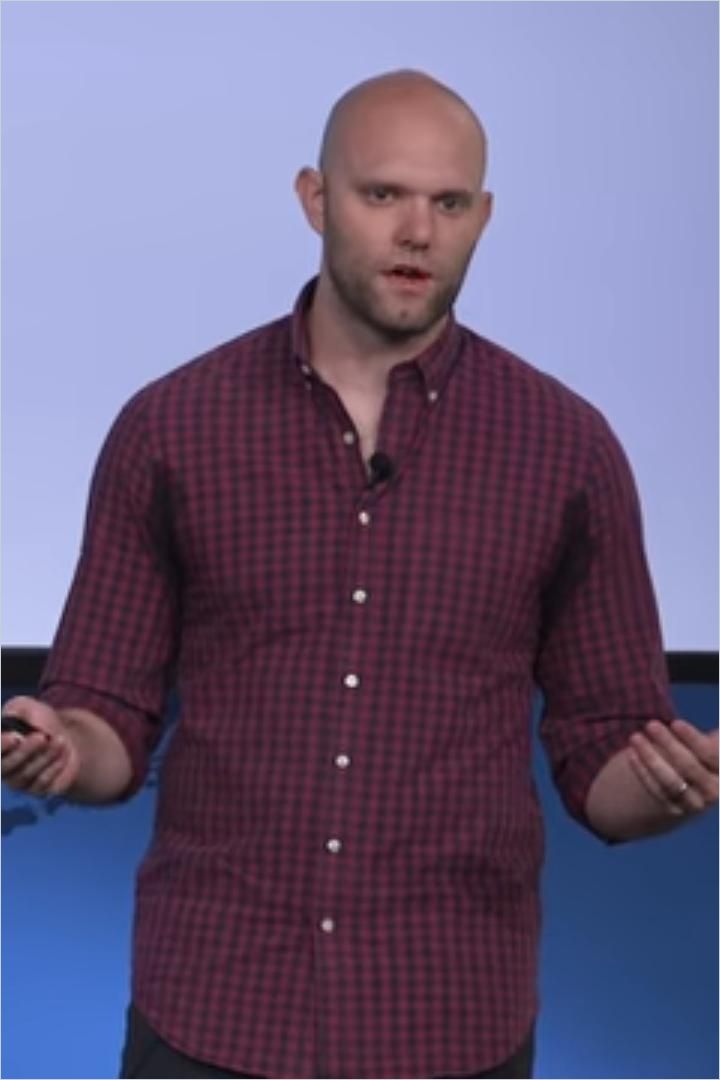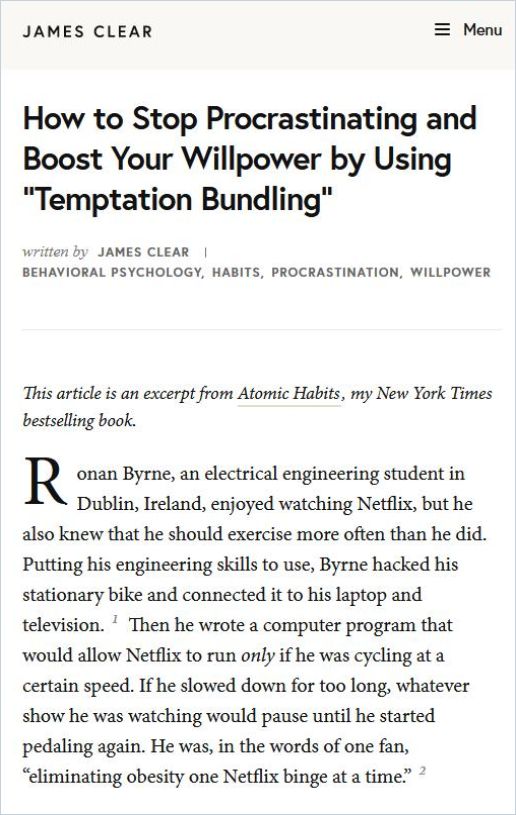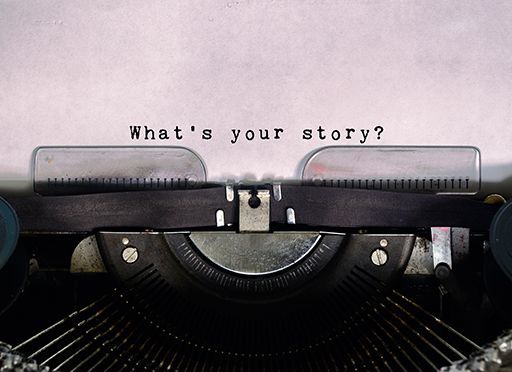The Art and Science of Journaling

It’s natural at the end of a year to reflect on the past, to remember triumphs large and small, to take the lessons from moments where your results fell short of expectations and figure out what you can do to improve things in the future. Journaling, writing a diary or record of your days, moods, thoughts, ideas, accomplishments and goals is a time-honored way to formalize the habit of remembrance and reflection. It also comes with ancillary benefits, for instance, you absorb information better when you write by hand. It’s a habit recommended by many productivity experts throughout the ages.
In author Henry David Thoreau’s time, a person could still escape to wooded solitude, open a notebook and take systematic stock of their life. In Walden, Thoreau worried about increasing consumerism and industrialization. Distractions have only multiplied in the world since then – and Thoreau didn’t have kids – but the habit of journaling can provide a calm oasis in the midst of a busy life, a practice arena for reflection and goal-setting that is as flexible as your imagination.
As soon as you put pen to paper, you establish a direct link to your mind and often your heart. This experience has yet to be properly replicated in the digital space.
Ryder Carroll
Find Your Voice
In Go Big Now, author Julia Pimsleur reminds readers that mindset is the foundation for your ability to accomplish goals and negative language will sabotage your efforts. Cultivate the practice of listening to your inner voice by journaling. Free-flow writing without judgment allows you to get intimately familiar with this voice and to mine your conscious and unconscious beliefs and values as they bubble up. Expressing your emotions by writing them down helps you to process them. Writing about your experiences gives you perspective. Self-knowledge is the first step towards any goal.
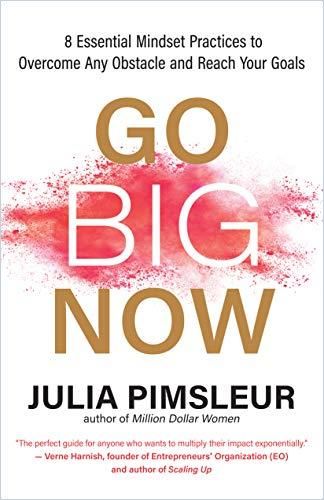
Some people have a “killjoy thermostat,” which kicks in to limit the amount of joy they feel they deserve. This is exactly the kind of limiting belief that journaling acquaints you with. Journaling can lead you to better, more consciously supportive beliefs. If the stories you tell yourself about yourself don’t serve you, write new ones. In The Write to Happiness, Samantha Shad outlines the basics for doing exactly that: writing yourself as a hero into a new narrative. Pimsleur recommends visualizing the results of your goal rather than the obstacles in the way.
Planning your future without processing your past will make your future look like your past.
Ryder Carroll
Look Back to Think Ahead
Minda Zetlin, author of Career Self-Care, talks about the role of journaling in a mindfulness practice. She recommends getting started with a simple, low-commitment habit of writing two sentences before going to sleep:
- Write “Today, I –” and write out your accomplishments for the day or anything good that happened.
- Write “Priority for tomorrow:” and write out only one thing.
By doing this writing before sleep, you prime your brain with a positive thought and an idea to begin thinking about the next day. Writing three things you’re grateful for helps you challenge negativity and shift into a positive mindset at any point in the day. Zetlin’s journal habit combines elements from Julia Cameron’s The Artist’s Way, which emphasizes three pages of daily freeform writing to reflect upon your emotions and clarify your thoughts, and Ryder Carroll’s The Bullet Journal Method, which sets out a systematic, modular method to keep track of your goals on three horizon lines: current, monthly and longer-term. Put an index at the front of your notebook and number your pages so you can quickly come back to previous writing. Keep it updated and you’ll never lose an idea again.
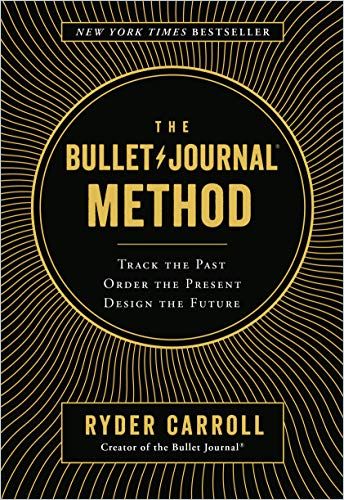
Capture your yearly goals over two or more pages after your Index page, separated into monthly sections. Capture your monthly tasks onto one page as you begin a new month, deciding whether to transfer or ditch tasks you didn’t cross off your list from the previous month. Your Daily Log is the place where you explore your daily thoughts and experiences and keep track of your daily tasks. It is the consistent practice of daily exploration that leads to invaluable self-knowledge. Ryder Carroll explains exactly how to set up a bullet journal for the new year:
Zetlin modified these approaches to create a system that works best for her. For instance, she tries to estimate when she’ll work on tasks and how long she expects them to take, so she can hold herself accountable and also better learn from her experiences. She keeps track of movies she’s seen and books she’s read. For Zetlin, journaling is about a notebook and pen, but “for some people, it might be doodling or artwork. It’s very individual and it’s infinitely customizable.”
So much of success is about managing the tension between the urgent and the important.
Minda Zetlin
For productivity expert Tiago Forte, author of Building a Second Brain, digital is the way to go. He developed an entirely digital system using note and app readers that he uses as a “second brain” to keep track of enormous amounts of information and make systematic progress on projects. He suggests organizing by areas of interest or using physicist Richard Feynman’s method of keeping track of twelve of your “favorite problems.” The secret of this system’s success is periodically going back through your notes and information logs to refine them so they are more useful to you for specific purposes. In this way, you end up with distilled and reusable units of knowledge with the additional virtue that they are already digitized for use in your projects.
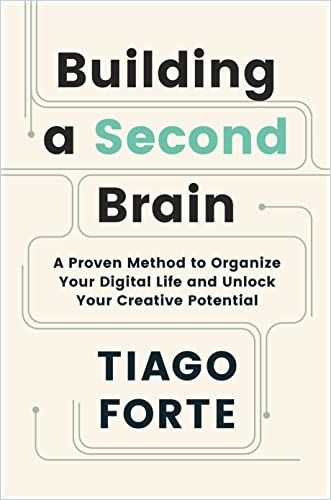
Forte outlines a systematic approach for using the beginning of a new year to hit reset on your goals. Set aside time to evaluate the projects and accomplishments of the past year. Note what worked and what can be improved. Think about what risks you took and, looking forward, what new skills or habits can help you reach your next goals.
Those who learn how to leverage technology and master the flow of information through their lives will be empowered to accomplish anything they set their minds to. At the same time, those who continue to rely on their fragile biological brains will become ever more overwhelmed by the explosive growth in the complexity of our lives.
Tiago Forte
Systems Work Better Than Willpower
In The One Thing, authors Gary Keller and Jay Papasan illuminate Keller’s system for focusing on priorities, which led to his phenomenal business success. Keller continually asks himself, “What is the One Thing that, by doing it, everything else will be easier or unnecessary?” First, go big, then you go small – what is the next “one thing?” In this way, you prioritize one primary task and then focus on the smaller, doable, daily steps to take to achieve it. Asking this question will help you craft a path forward for your career or personal life.
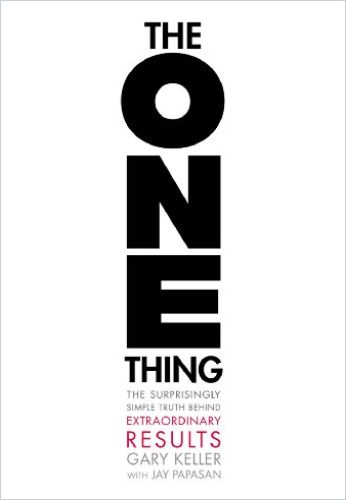
Your goals point the way forward, but daily effort is what turns wishes into achievements. And daily effort depends upon habit, not willpower. Willpower fades, but habits become simply what you do daily to make progress on your goals and build momentum. Author James Clear is a big believer in steady, slow progress. He emphasizes in Atomic Habits that, even if you’re certain about your “one thing,” establishing supportive systems and working to perfect your process of work will yield more fruitful results than just aiming at big goals. Focusing on daily accomplishments and skill-building allows you to be fully present as you make progress; your goal becomes part of the warp and woof of your life, not some ever-receding future horizon.
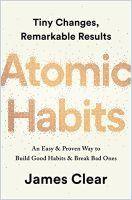
Clear says in “Forget About Setting Goals. Focus on This Instead” that focusing on your process is the only real agency you have over the future. Find a metric to help you determine whether or not you’re succeeding in the direction of your goals, but otherwise, commit to perfecting the process and building good daily habits. For many people, this daily habit includes writing in a journal.
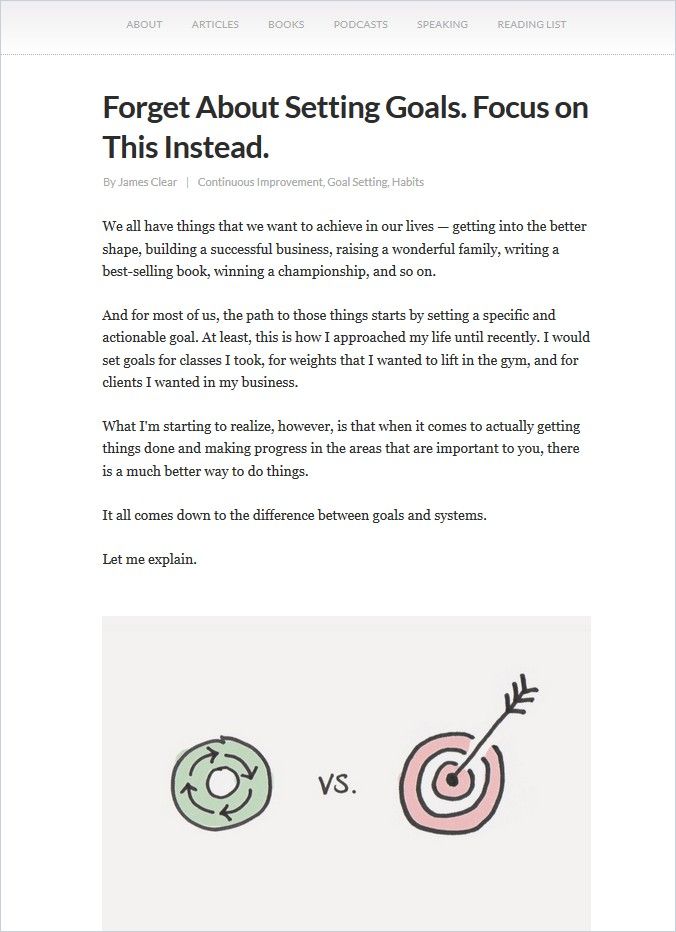
Keep these basics for journaling in mind:
- Use your journal to find your biggest, most inspirational goals, then break them down into milestones you can achieve by working steadily.
- Take time to periodically review what you’ve written and distill the insights. When you begin a new journal is a natural time to do this.
- Use these insights to keep perfecting your journaling process.
- Check in with your thoughts and emotions by just writing, without judgment.
- Record your experiences as the first step to reflecting upon them.
- Ask yourself what is your “one thing,” whether it’s the one small thing you need to do today or the one big thing that keeps you focused on the larger picture.
- Keep your journal handy so you can write down your thoughts as they occur.
- Find a way to integrate journaling into your daily life and make it a habit.
Meaning can reveal itself in the most unremarkable, unpredictable and quiet of moments. If we’re not listening to the world around us, as well as the one within, we may miss it: the music in the mundane.
Ryder Carroll

